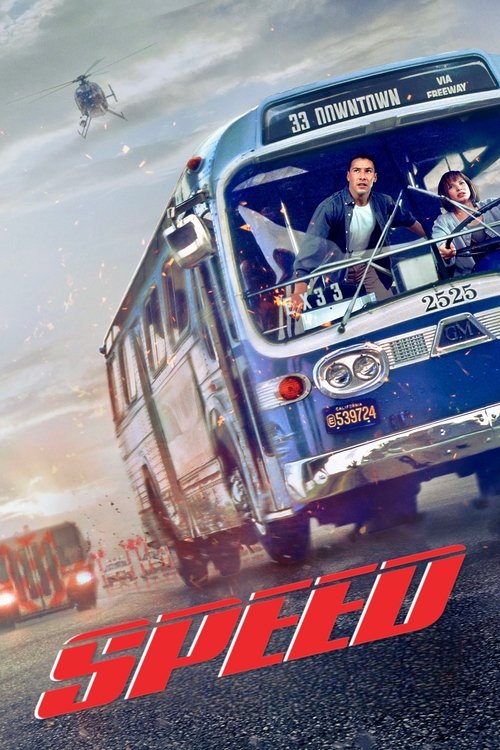
Title: Speed
Year: 1994
Director: Jan de Bont
Writer: Graham Yost
Cast: Keanu Reeves (Jack Traven), Dennis Hopper (Howard Payne), Sandra Bullock (Annie), Joe Morton (Capt. McMahon), Jeff Daniels (Harry),
Runtime: 116 min.
Synopsis: Jack Traven, an LAPD cop on SWAT detail, and veteran SWAT officer Harry Temple thwart an extortionist-bomber's scheme for a $3 million ransom. As they corner the bomber, he flees and detonates a bomb vest, seemingly killing himself. Weeks later, Jack witnesses a mass transit city bus explode and nearby a pay phone rings. On the phone is that same bomber looking for vengeance and the money he's owed. He gives a personal challenge to Jack: a bomb is rigged on another city bus - if it slows down below 50 mph, it will explode - bad enough any day, but a nightmare in LA traffic. And that's just the beginning...
Rating: 7.142/10